1970s: Joe Frazier-Muhammad Ali I
Why it was anticipated: Ali was the heavyweight champion who had run afoul of the U.S. government over refusing to go to war in Vietnam, and Frazier was the man who took over the championship mantle while he was away. With the dispute about who the real champ was, and both undefeated, there was much to resolve. The fight also doubled as a proxy for the tumult over the Vietnam war itself, and the broader civil rights movement. Ali was controversial from very early in his career, but by this time he was a transcendent sports figure. The contrast in fight styles — Ali was not as quick as he used to be, but still nimble for a heavyweight, while Frazier was a bruiser — made it even more irresistable. No wonder it was dubbed “The Fight of the Century,” and one of the only to carry that title that wasn’t laughable. It was so anticipated, Frank Sinatra got himself a photographer credential to be closer to the action.
Did it live up to the hype?: It was an excellent fight with back-and-forth shifts in momentum and plenty of action, but since has become overshadowed by Ali-Frazier III (The Thrilla in Manila), which might be the best fight ever, and even Ali-George Foreman (The Rumble in the Jungle), Ali’s most celebrated win. Frazier won the decision the first time they met, though, punctuating his decision victory with a 15th round knockdown of Ali.
On the call: Don Dunphy, Archie Moore and Burt Lancaster for the closed circuit broadcast. Yes, that Burt Lancaster. Dunphy, a legendary broadcaster, was no fan of the choice, but the promoter of the fight was friends with Lancaster and he wanted a choice that would lend to the spectacle. Lancaster had no sports broadcast experience and memorized interview lines for his pre-fight talk with Ali, and Dunphy arranged it so Lancaster would only talk between rounds of the broadcast itself.
1980s: Sugar Ray Leonard-Marvin Hagler
Why it was anticipated: Leonard began teasing the idea of a fight with Hagler at his 1982 mystery announcement where he stood next to Hagler and said, “It would be one terrific fight… but it’ll never happen,” and then declared he was retiring. In 1987, when the fight finally did happen, Hagler had emerged as the best in the business, and Leonard was coming out of one of his periodic retirements. They were the last of the era’s “Four Kings” (along with Thomas Hearns and Roberto Duran) never to face one another, and there was a blue collar worker vs. golden boy appeal to the match.
Did it live up to the hype?: It had a certain cat-and-mouse drama, with Hagler chasing and Leonard circling and showboating. And because it was a hard fight to score, it had that kind of drama, too. It was not a thriller, exactly. It remains one of the most debated decisions in all of boxing, with many who will argue — as angrily today as when the fight had just finished — that Hagler, not Leonard, deserved the win.
On the call: Barry Tompkins and Larry Merchant, for HBO. It led to Tompkins’ most famous call, “How do you like it? How do you like it?” which had an unintentional double meaning — how did you enjoy the fight, and whom do you like as the fighter who should win the decision? Leonard often called HBO fights those days, and was said to be hurt when Merchant predicted a Hagler victory beforehand.
1990s: Evander Holyfield-Mike Tyson II
Why it was anticipated: People had been clamoring for Holyfield-Tyson since the late 1980s, but “James” Buster Douglas and Tyson’s trip to jail put all that on halt. By the time they finally met in 1997, Holyfield had been through a ton of up and downs at heavyweight and Tyson was menacing the division, so Holyfield was the underdog. When Holyfield beat up Tyson, the rematch finally made the idea of Holyfield-Tyson mega-huge again.
Did it live up to the hype?: Depends on how much you’re into cannibalism. It’s certainly one of the most memorable fights in boxing history, thanks to Mike Tyson gnawing on Holyfield’s ears. Holyfield was bullying Tyson before Tyson turned this into the infamous “bite fight,” and the consequences were profound. To this day, if you ask a former boxing fan why he or she isn’t anymore, you might hear the answer, “When Tyson bit off Holyfield’s ear, I was done.”
On the call: Steve Albert and Bobby Czyz, for Showtime. Some notable quotes: “I can’t believe what I’m seeing fellas,” said Czyz, upon the replay of the second bite. Albert, afterward — “It is complete bedlam, and Tyson is just taking swipes at anybody in front of him.” “It’s a fiasco in the ring.”
2000s: Floyd Mayweather-Oscar De La Hoya
Why it was anticipated: With Tyson retired, and Holyfield over the hill, De La Hoya was the last pay-per-view giant standing in boxing, a regular on the Tonight Show and the biggest name for the Mexican/Mexican-American wave that had taken over as boxing’s biggest fan base. Mayweather had been chasing De La Hoya his whole career, and by then firmly established as the best fighter in the world, he had turned himself into a decent PPV attraction. Rarely one to reject a challenge, De La Hoya finally gave Mayweather what he wanted. The pre-fight build-up turned Mayweather into an even bigger star, as he perfectly played the heel on HBO’s new “24/7” program, contrasting with De La Hoya’s movie star looks and friendly persona.
Did it live up to the hype?: It wasn’t a stinker, anyway, but it wasn’t all that exciting, either. To this day fans debate whether the judges scored it accurately, with many seeing a very close combat (as the judges did, who awarded it narrowly to Mayweather) and others thinking Mayweather dominated. Despite the lack of dynamism in the combat, it vaulted Mayweather to a new level of hype.
On the call: Jim Lampley, Emanuel Steward and Larry Merchant for HBO. Merchant is brilliant at setting up a fight’s dynamic beforehand, and delivering its coda. “Mayweather lusts after De La Hoya’s stardom. De La Hoya lusts after Mayweather’s status. Will we get spontaneous combustion?” he said at the opening bell, then, late, “This is an argument with fists, and the younger man appears to be winning the argument.” Lampley uttered this closing line: “Fighting Floyd Mayweather is a dose of cold reality.”

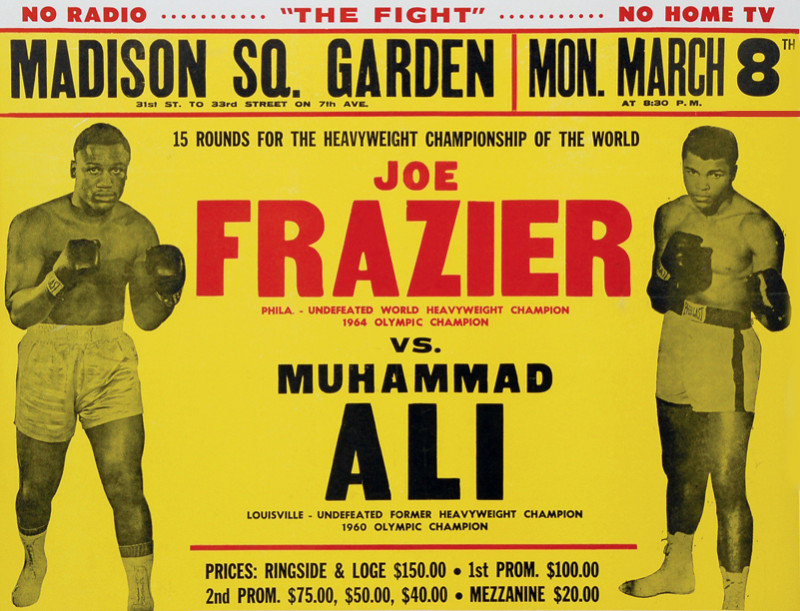
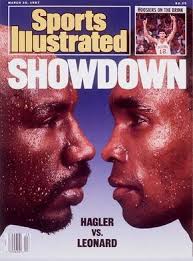
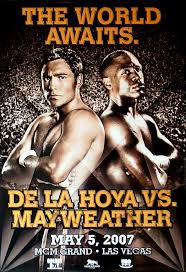
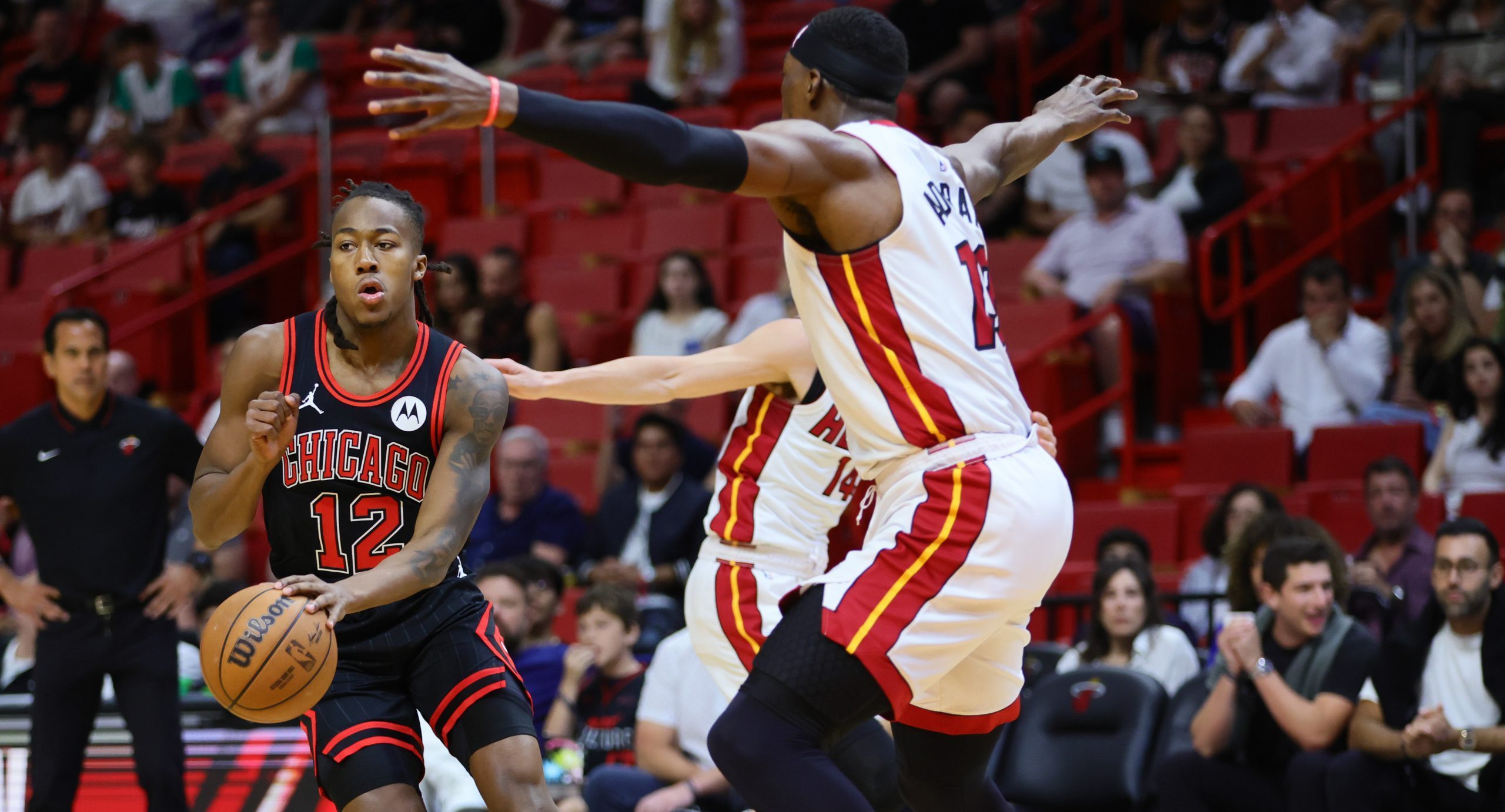
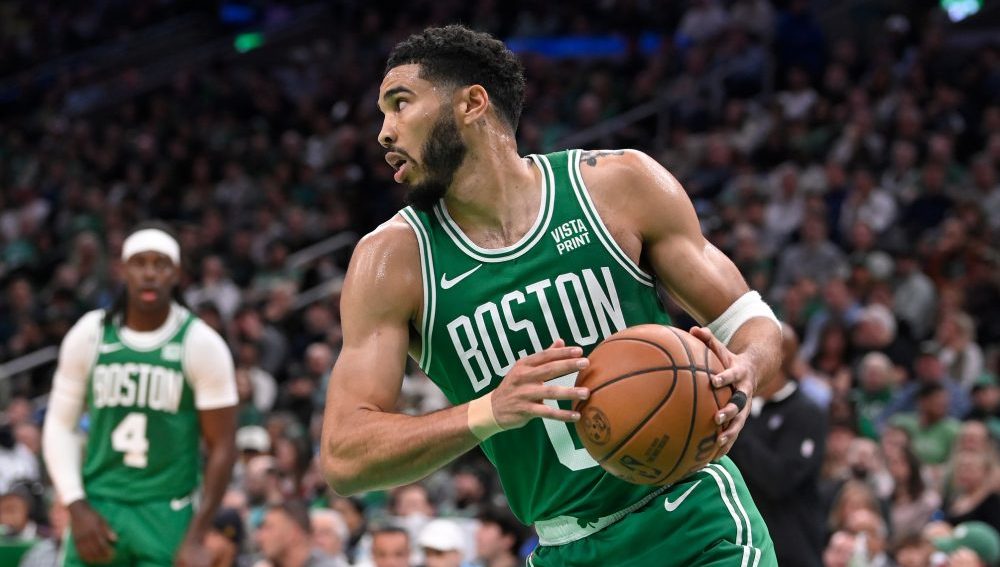




Comments are closed.